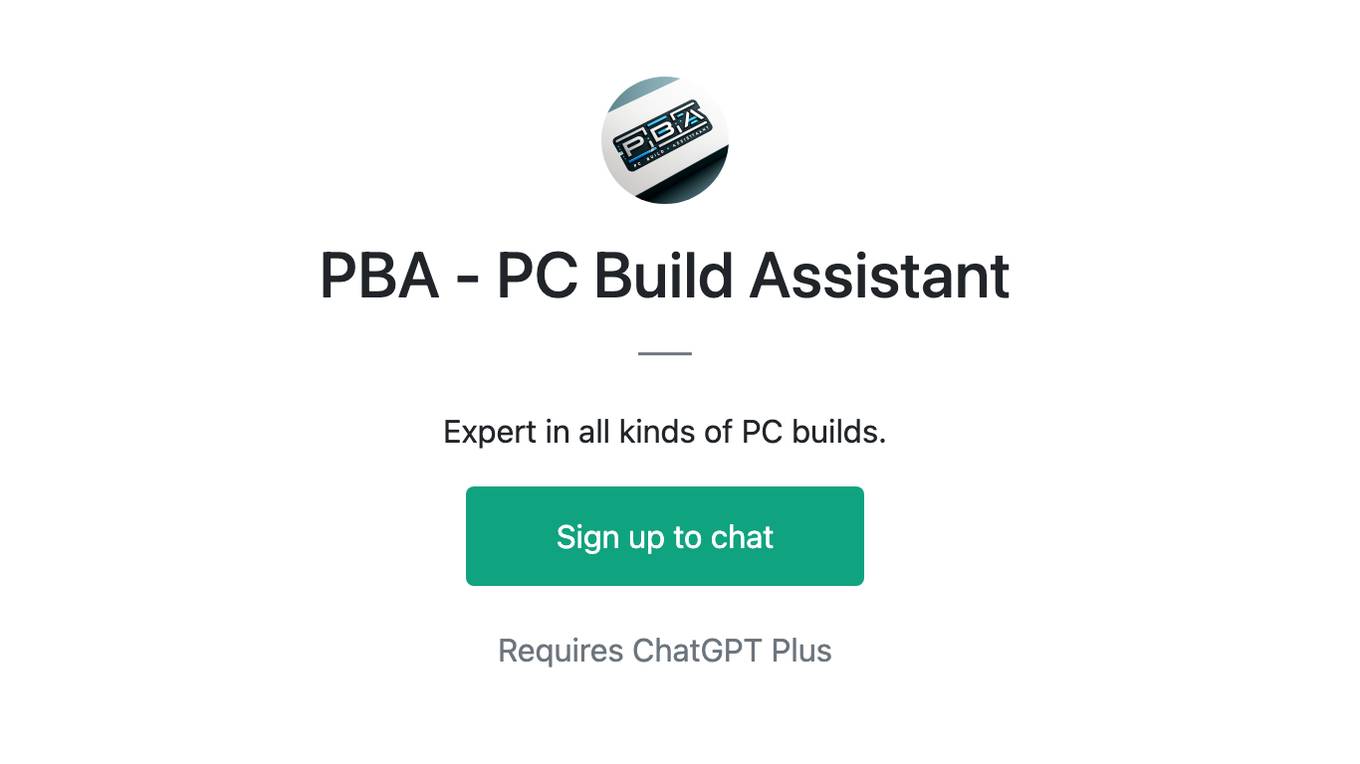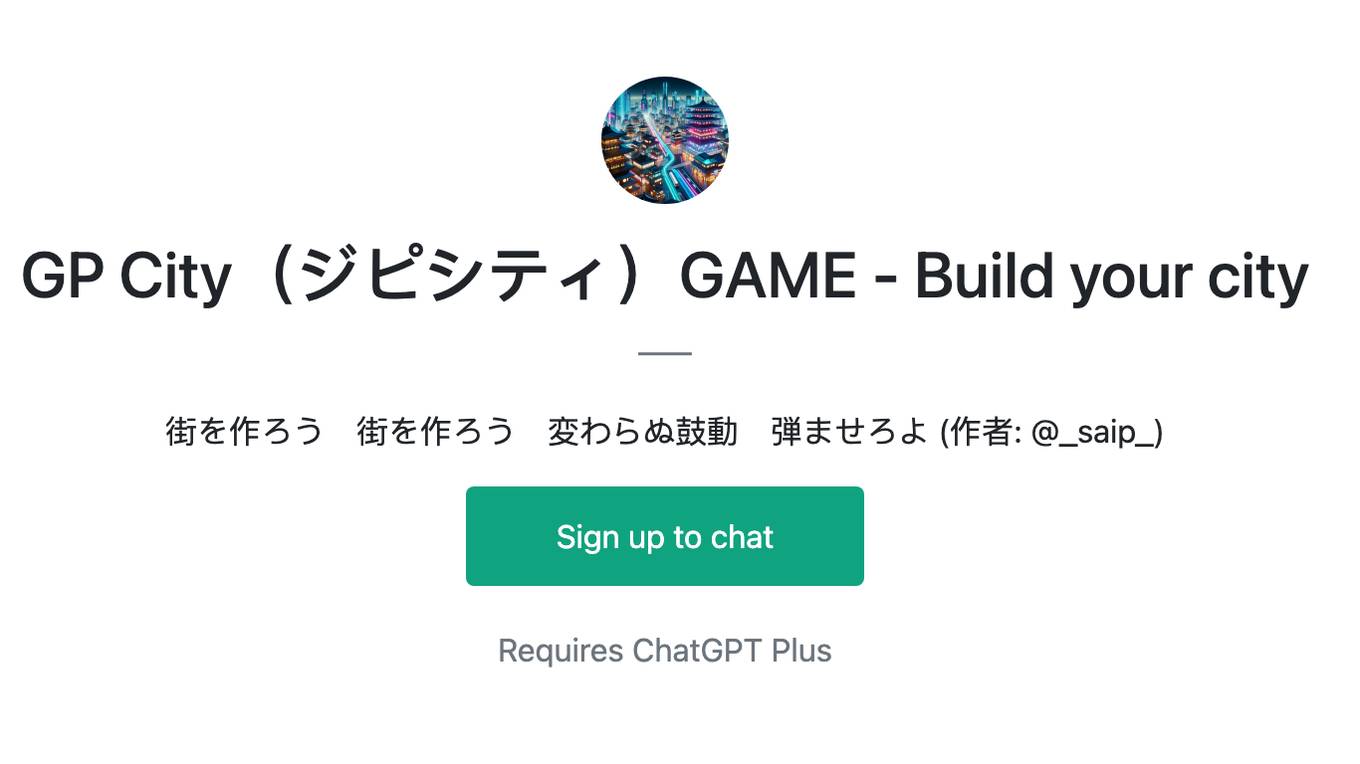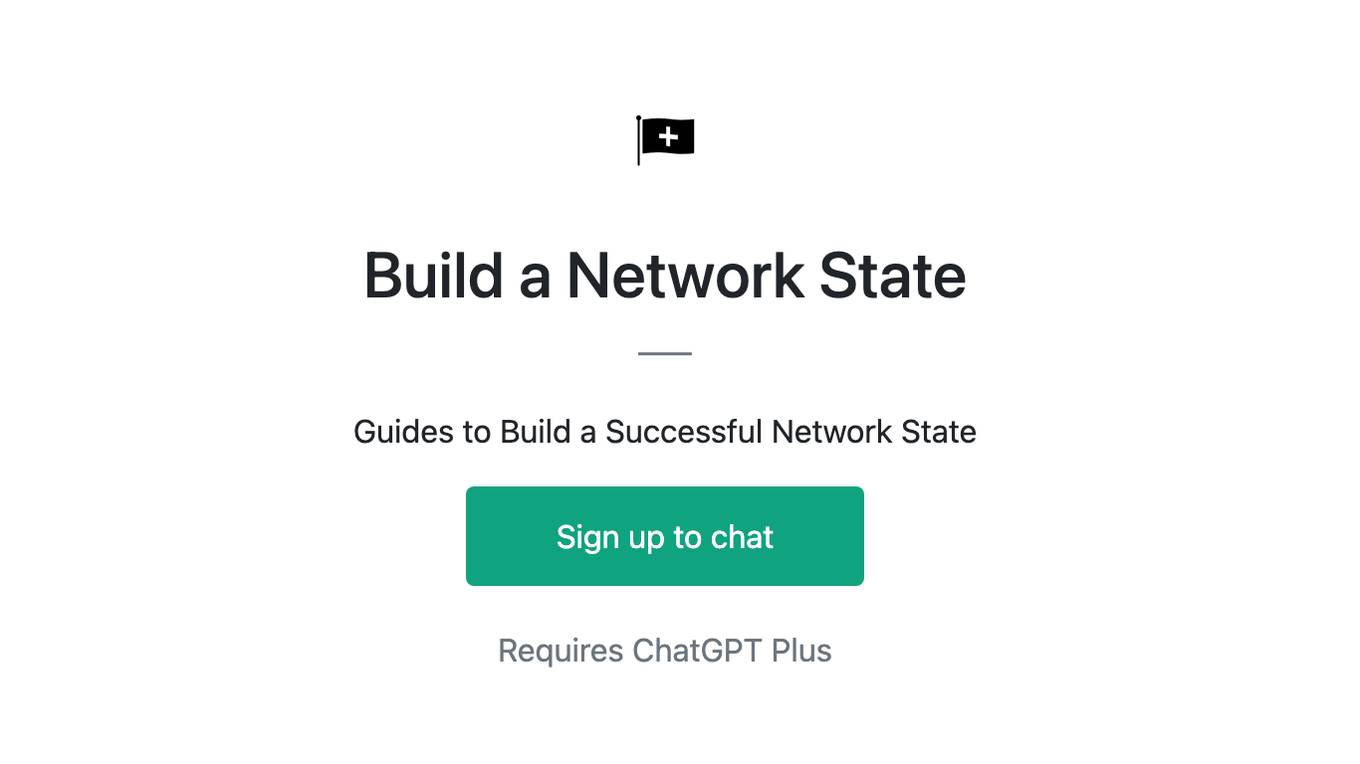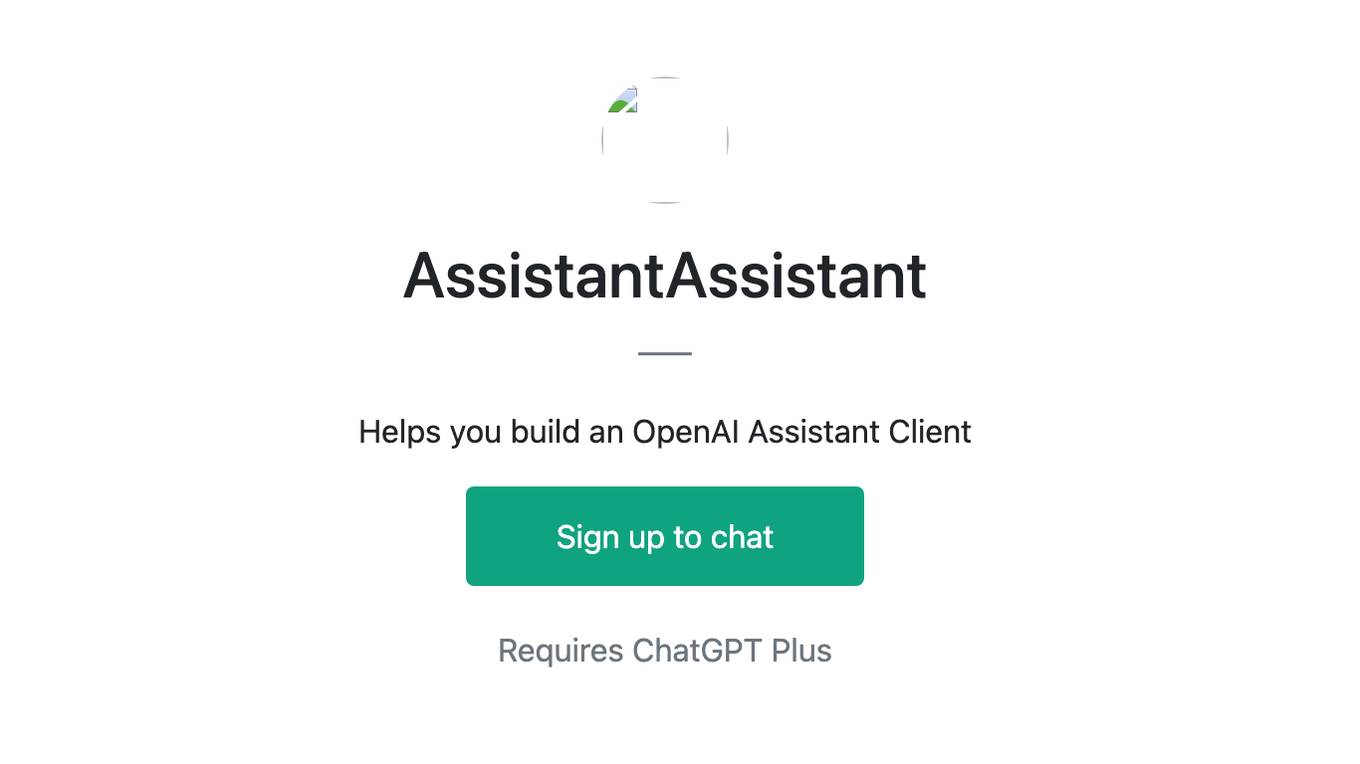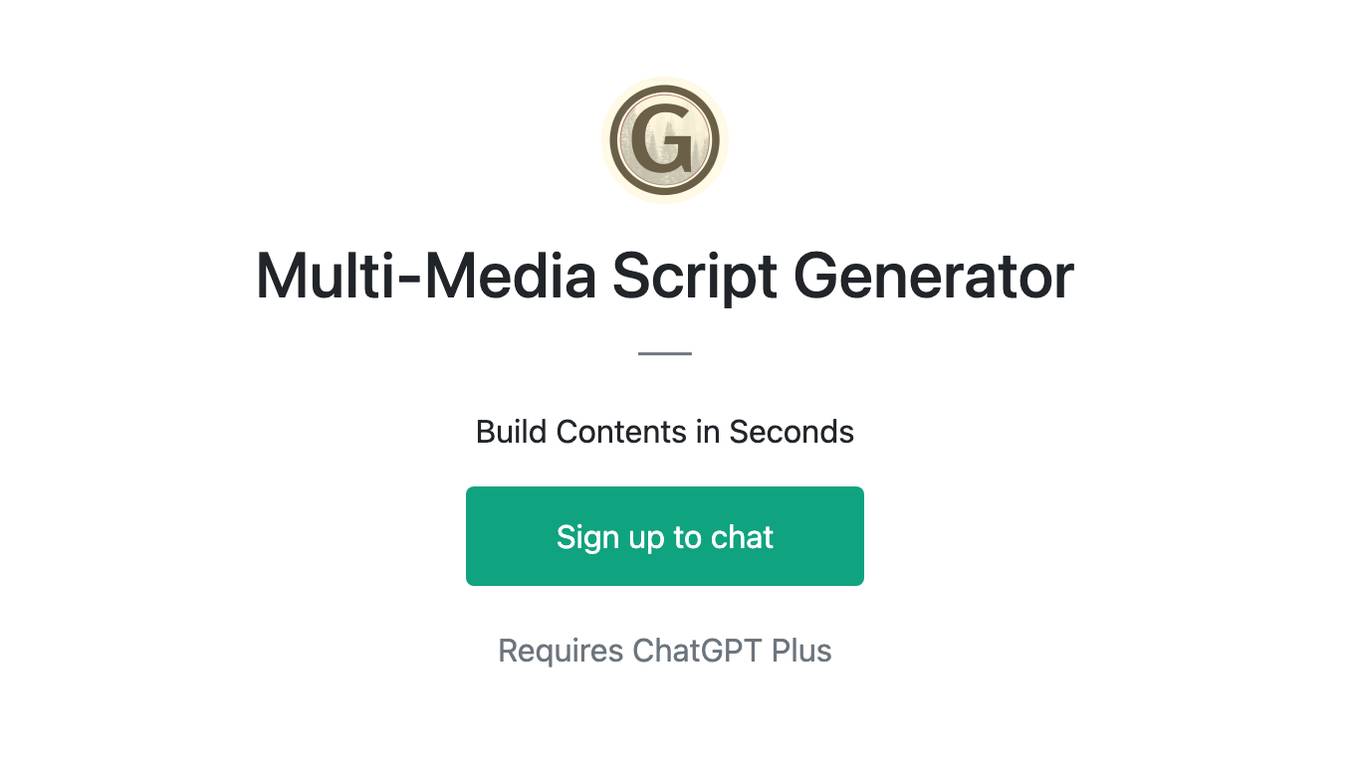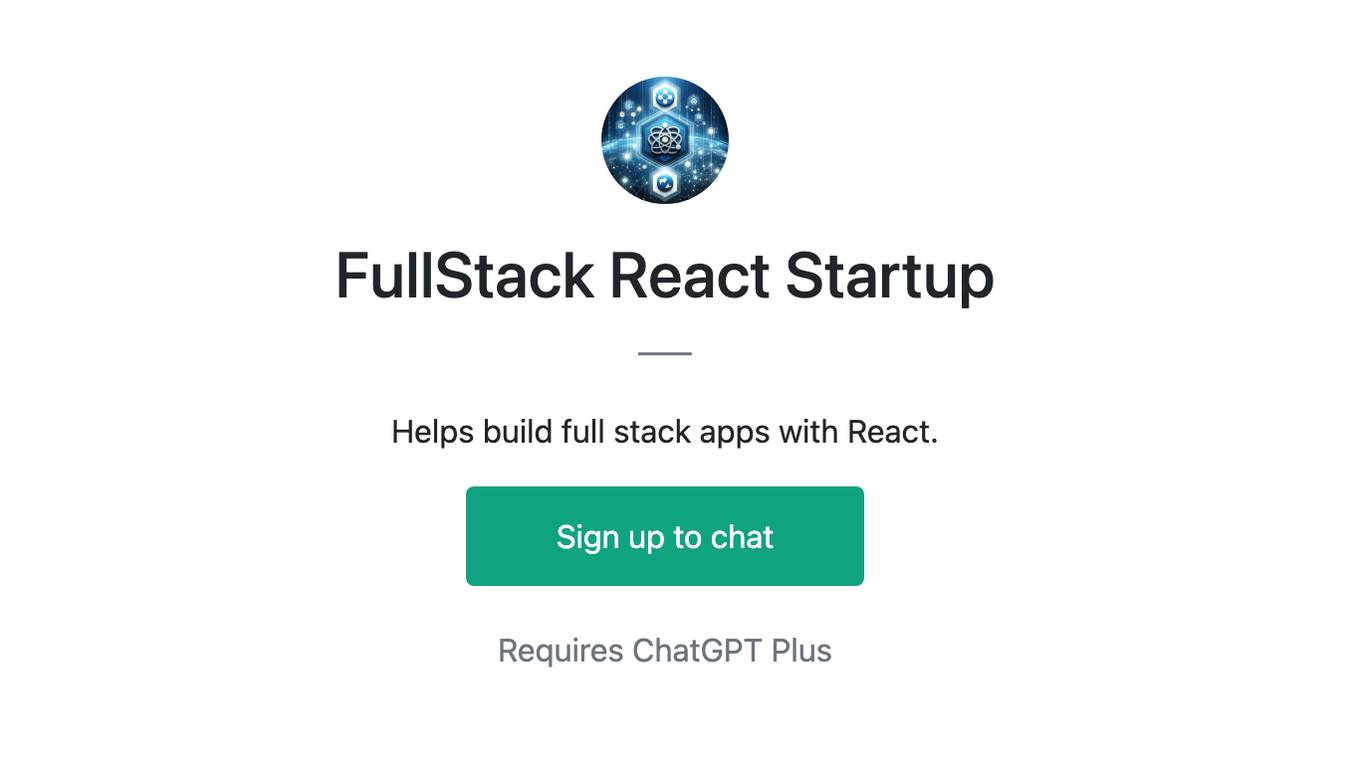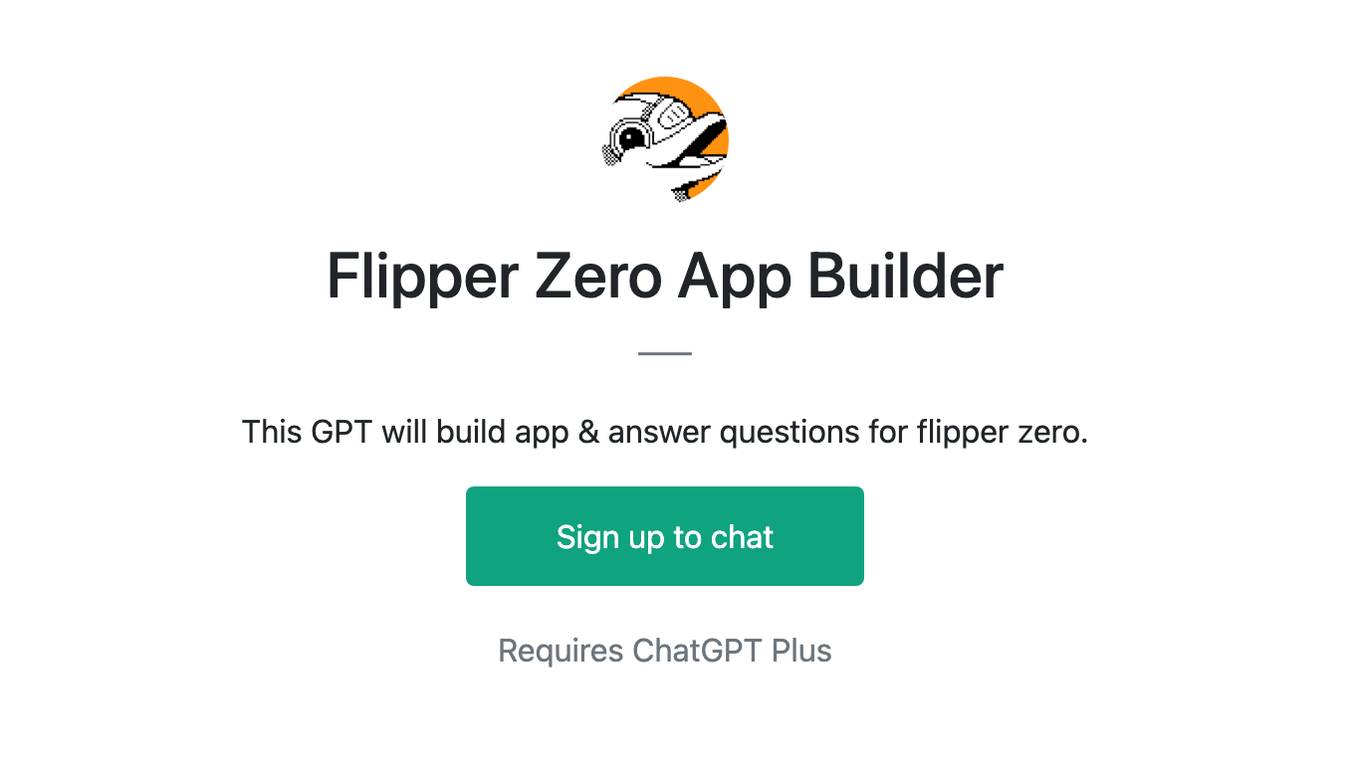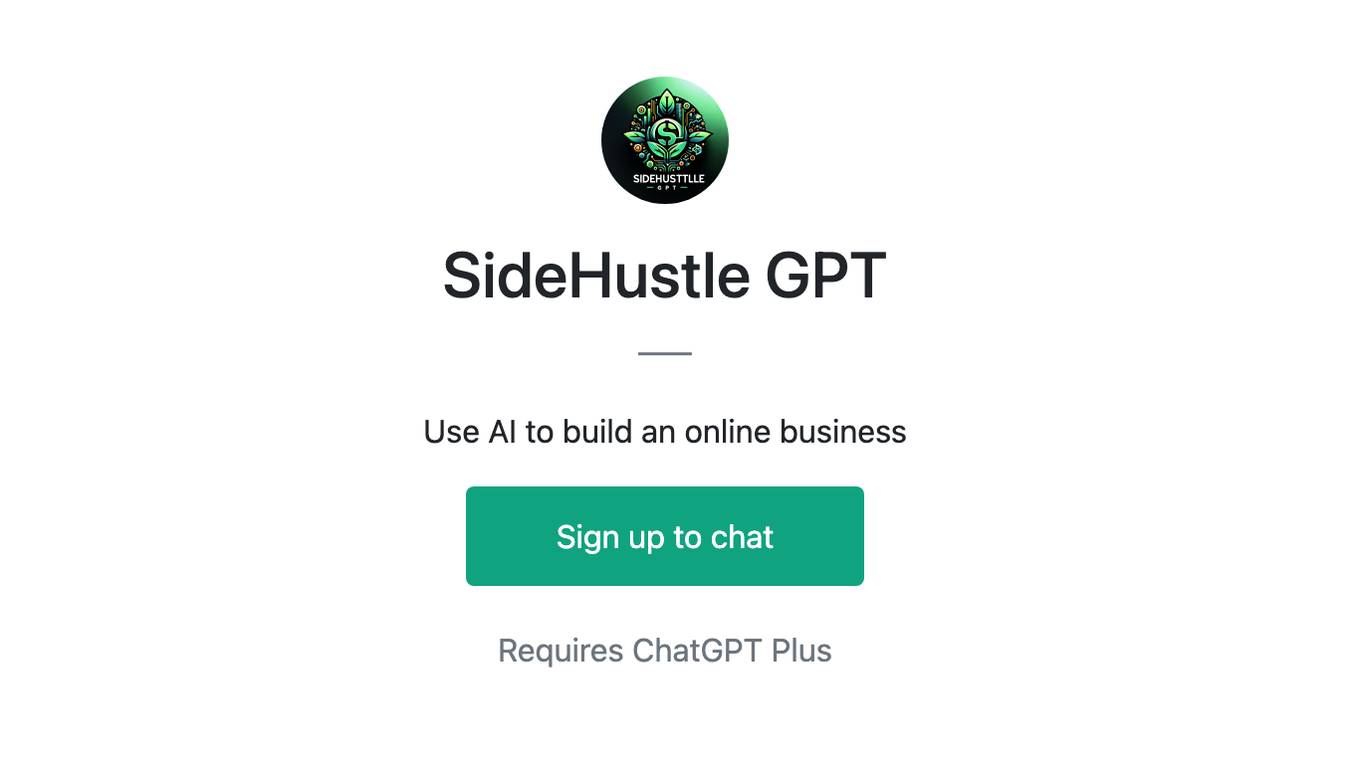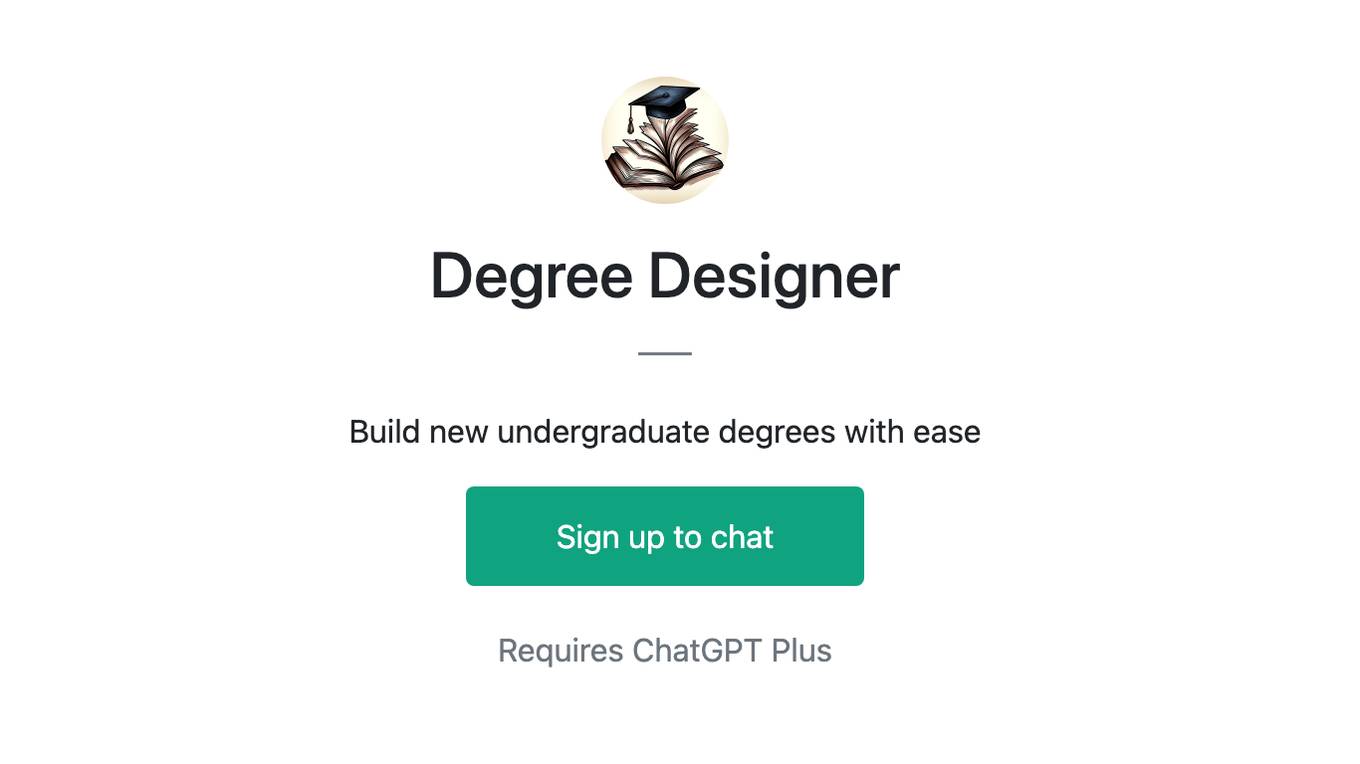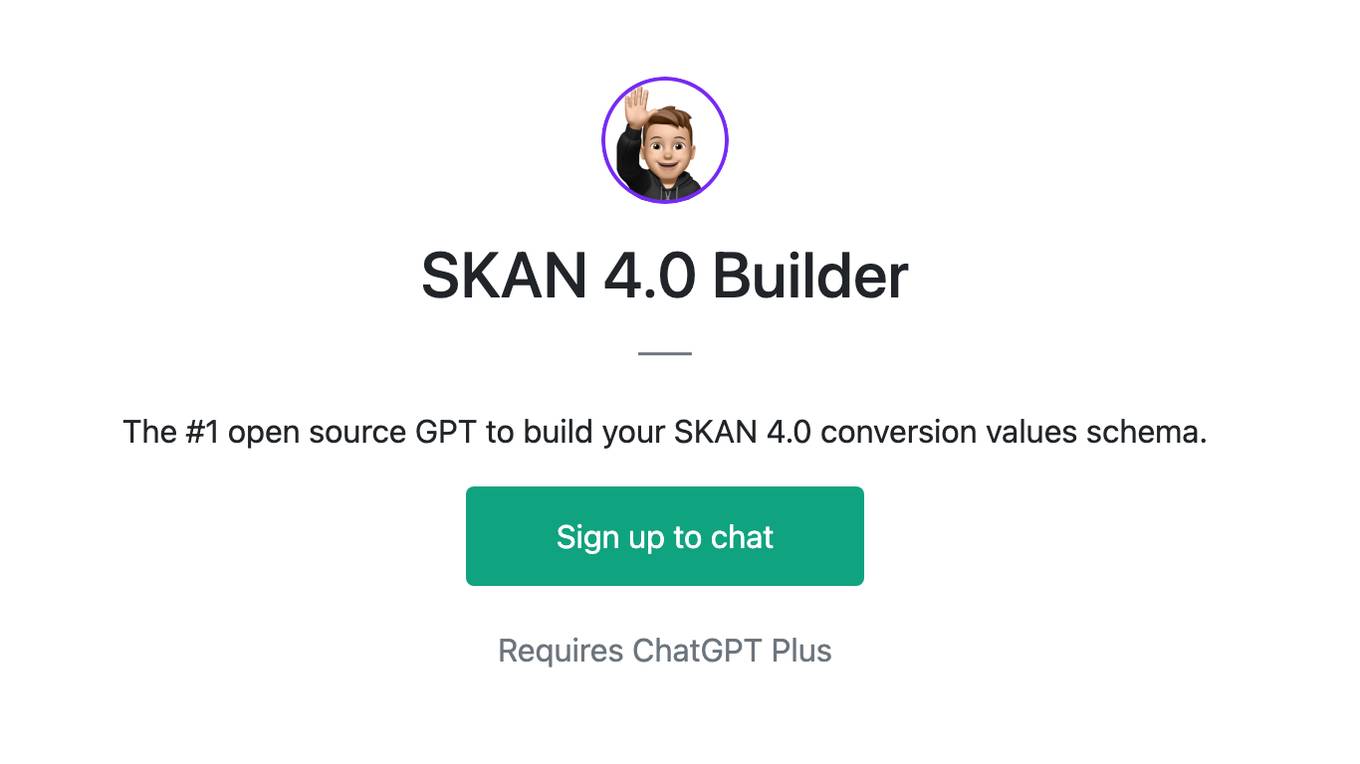Best AI tools for< Build Rag Systems >
20 - AI tool Sites
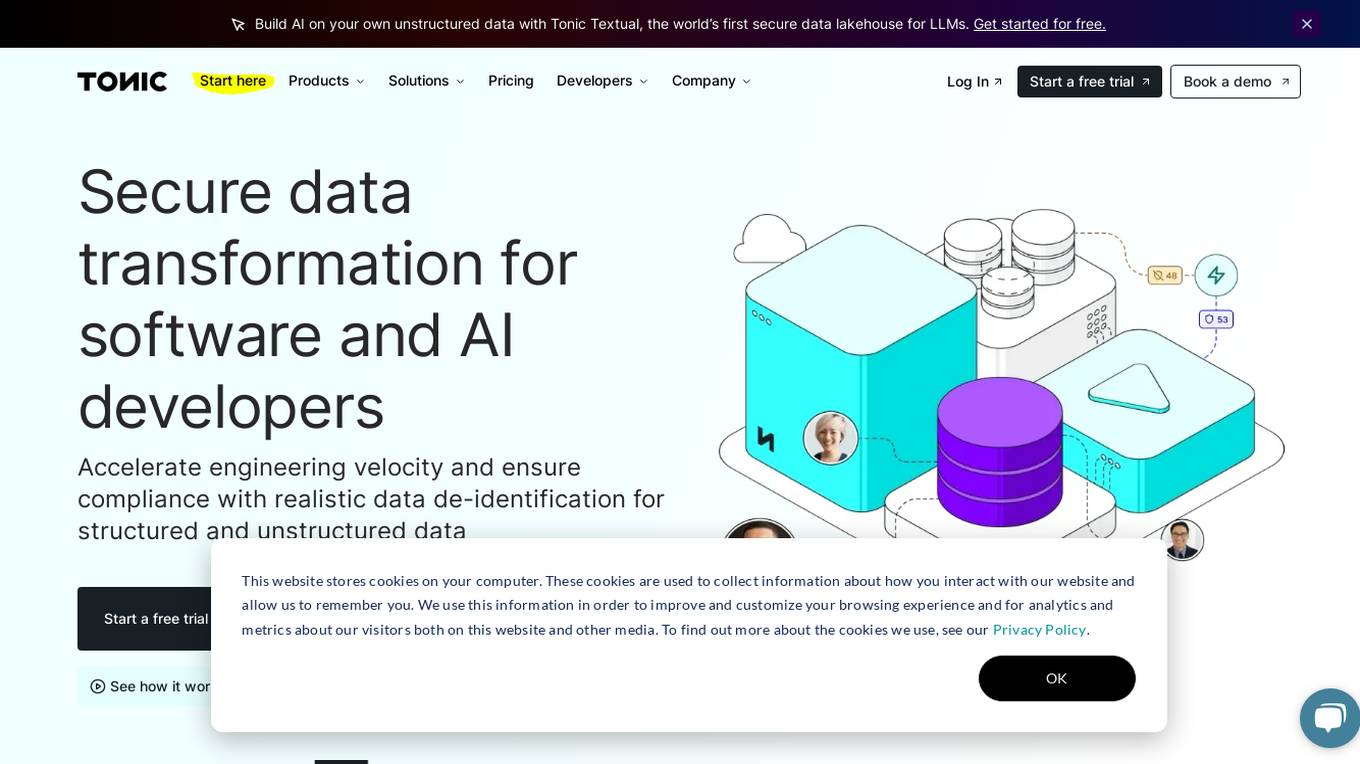
Tonic.ai
Tonic.ai is a platform that allows users to build AI models on their unstructured data. It offers various products for software development and LLM development, including tools for de-identifying and subsetting structured data, scaling down data, handling semi-structured data, and managing ephemeral data environments. Tonic.ai focuses on standardizing, enriching, and protecting unstructured data, as well as validating RAG systems. The platform also provides integrations with relational databases, data lakes, NoSQL databases, flat files, and SaaS applications, ensuring secure data transformation for software and AI developers.
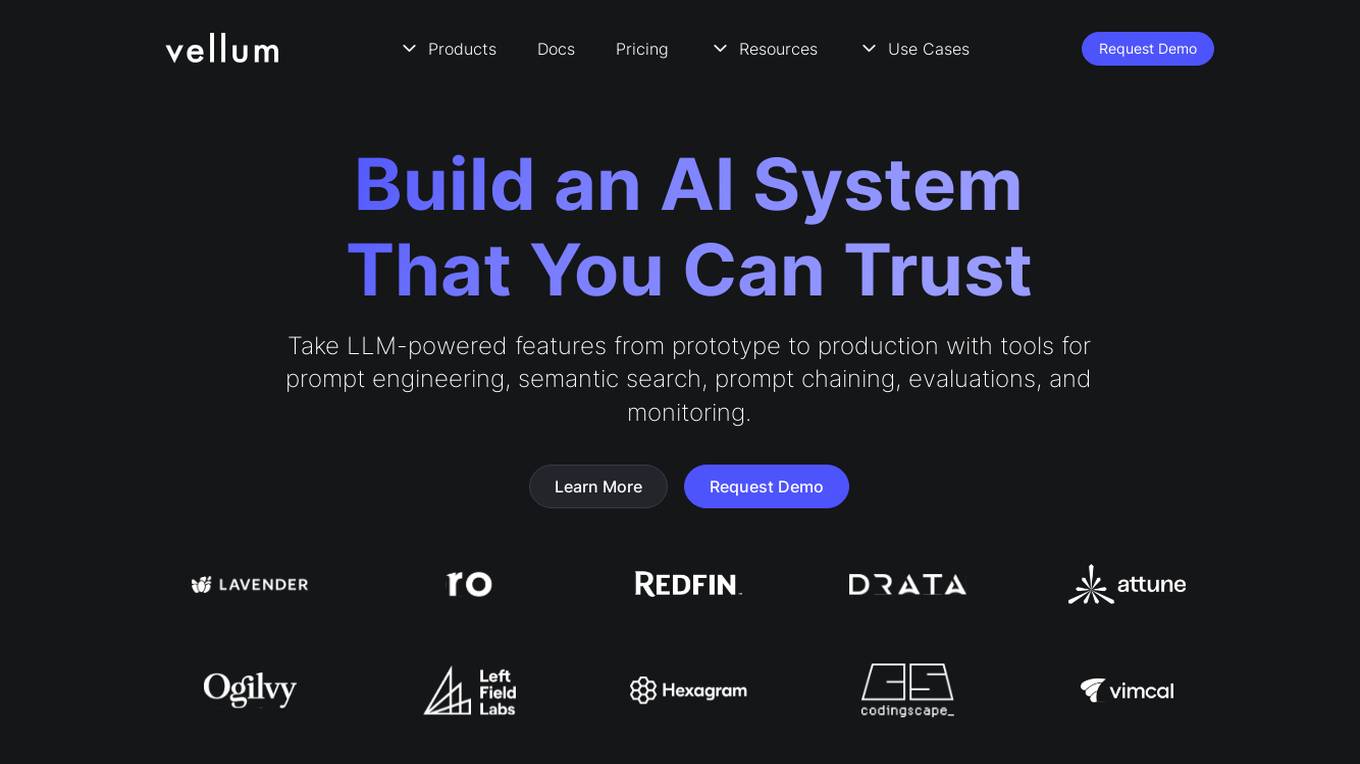
Vellum AI
Vellum AI is an AI platform that supports using Microsoft Azure hosted OpenAI models. It offers tools for prompt engineering, semantic search, prompt chaining, evaluations, and monitoring. Vellum enables users to build AI systems with features like workflow automation, document analysis, fine-tuning, Q&A over documents, intent classification, summarization, vector search, chatbots, blog generation, sentiment analysis, and more. The platform is backed by top VCs and founders of well-known companies, providing a complete solution for building LLM-powered applications.
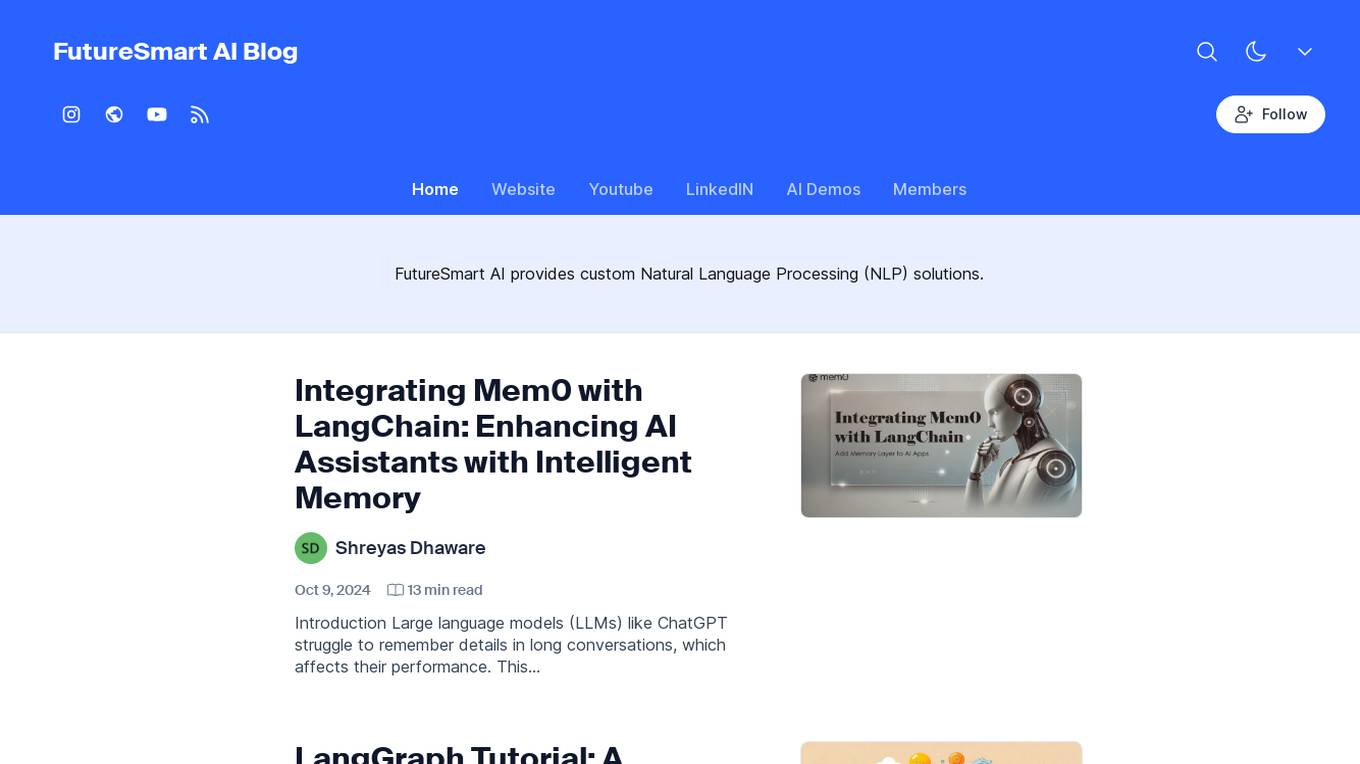
FutureSmart AI
FutureSmart AI is a platform that provides custom Natural Language Processing (NLP) solutions. The platform focuses on integrating Mem0 with LangChain to enhance AI Assistants with Intelligent Memory. It offers tutorials, guides, and practical tips for building applications with large language models (LLMs) to create sophisticated and interactive systems. FutureSmart AI also features internship journeys and practical guides for mastering RAG with LangChain, catering to developers and enthusiasts in the realm of NLP and AI.
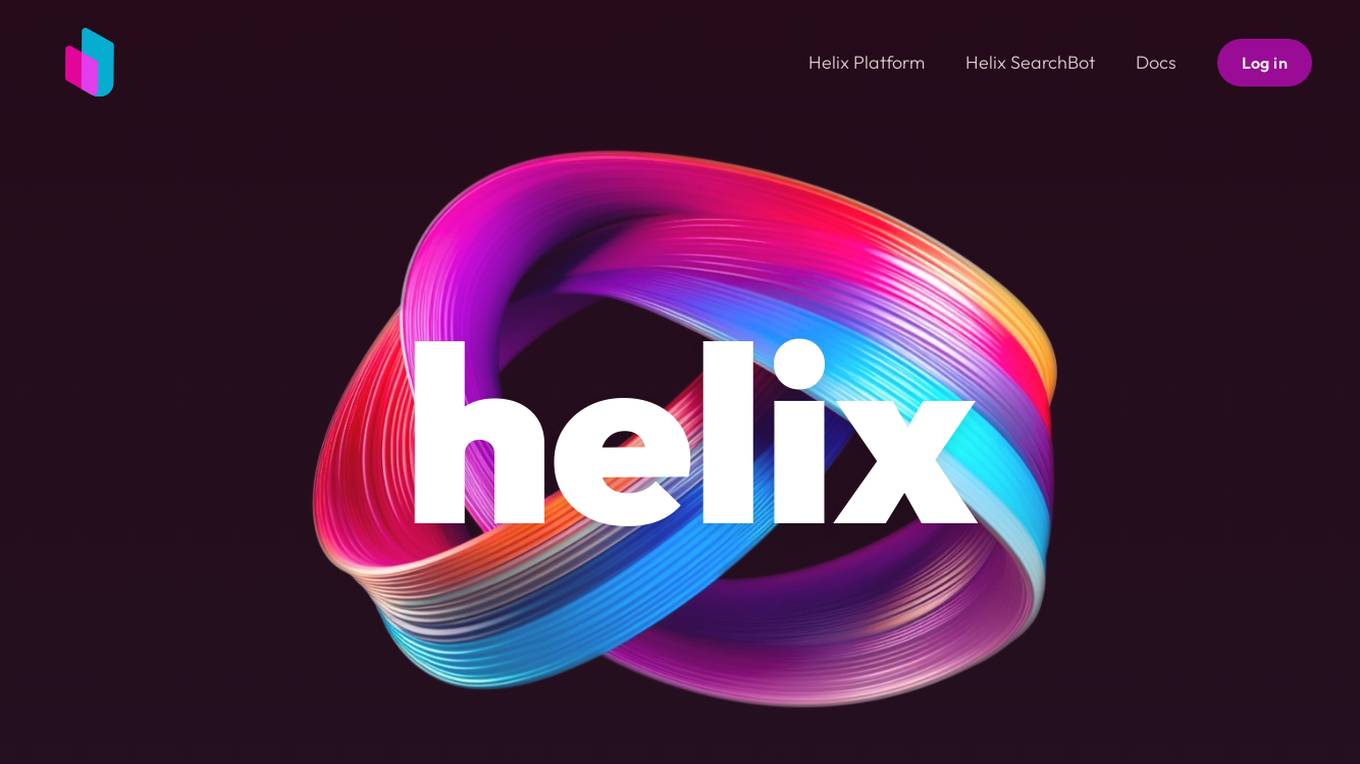
Helix AI
Helix AI is a private GenAI platform that enables users to build AI applications using open source models. The platform offers tools for RAG (Retrieval-Augmented Generation) and fine-tuning, allowing deployment on-premises or in a Virtual Private Cloud (VPC). Users can access curated models, utilize Helix API tools to connect internal and external APIs, embed Helix Assistants into websites/apps for chatbot functionality, write AI application logic in natural language, and benefit from the innovative RAG system for Q&A generation. Additionally, users can fine-tune models for domain-specific needs and deploy securely on Kubernetes or Docker in any cloud environment. Helix Cloud offers free and premium tiers with GPU priority, catering to individuals, students, educators, and companies of varying sizes.
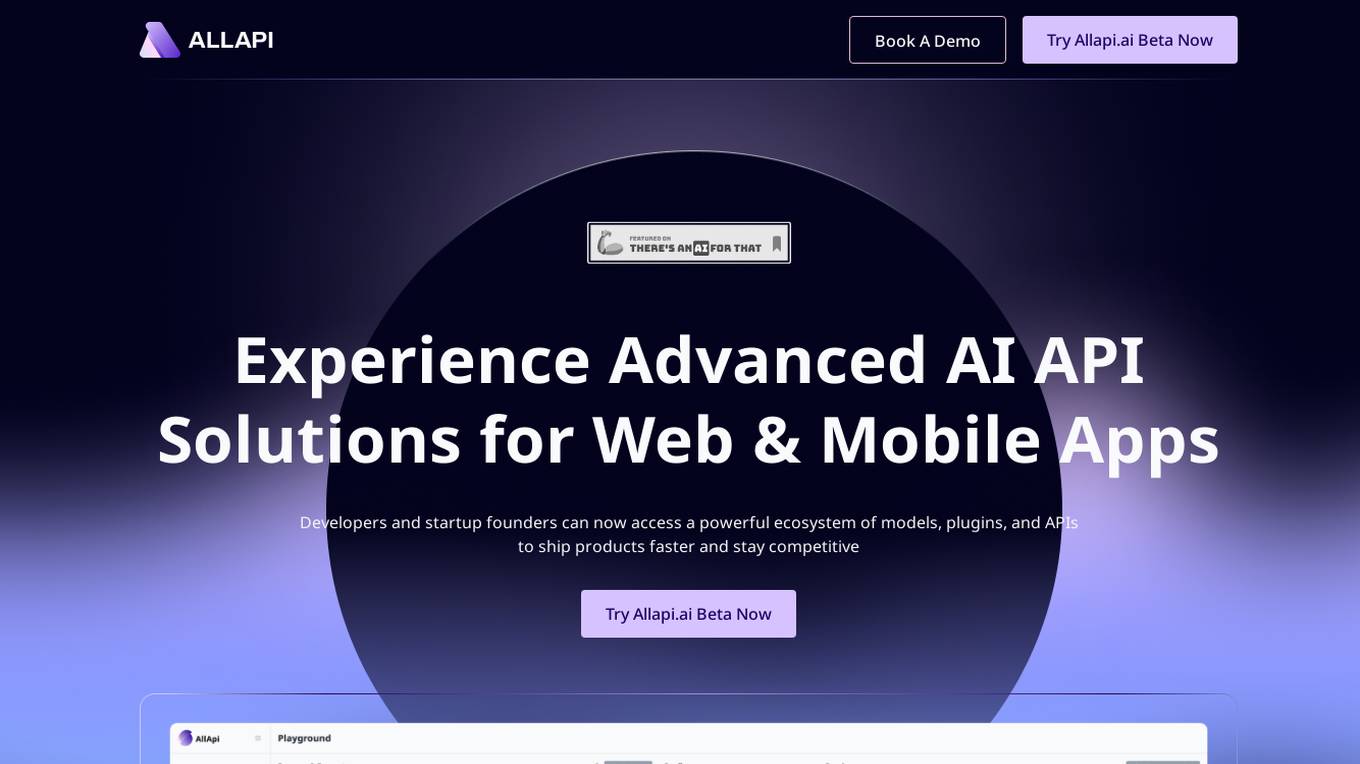
Allapi.ai
Allapi.ai is an advanced AI API platform designed to simplify AI integration for developers and startup founders. It offers a powerful ecosystem of models, plugins, and APIs to help users build and deploy AI-powered applications quickly and efficiently. With features like dynamic data capabilities, advanced RAG system, streamlined development process, and intelligent code assistant, Allapi.ai aims to accelerate innovation and reduce development costs. The platform provides access to cutting-edge AI models like Claude3, GPT-4, Gemini 1.5 Pro, and LLaMA 3, along with a wide range of plugins and tools to supercharge AI-driven applications.

Langflow
Langflow is a low-code app builder for RAG and multi-agent AI applications. It is Python-based and agnostic to any model, API, or database. Langflow offers a visual IDE for building and testing workflows, multi-agent orchestration, free cloud service, observability features, and ecosystem integrations. Users can customize workflows using Python and publish them as APIs or export as Python applications.
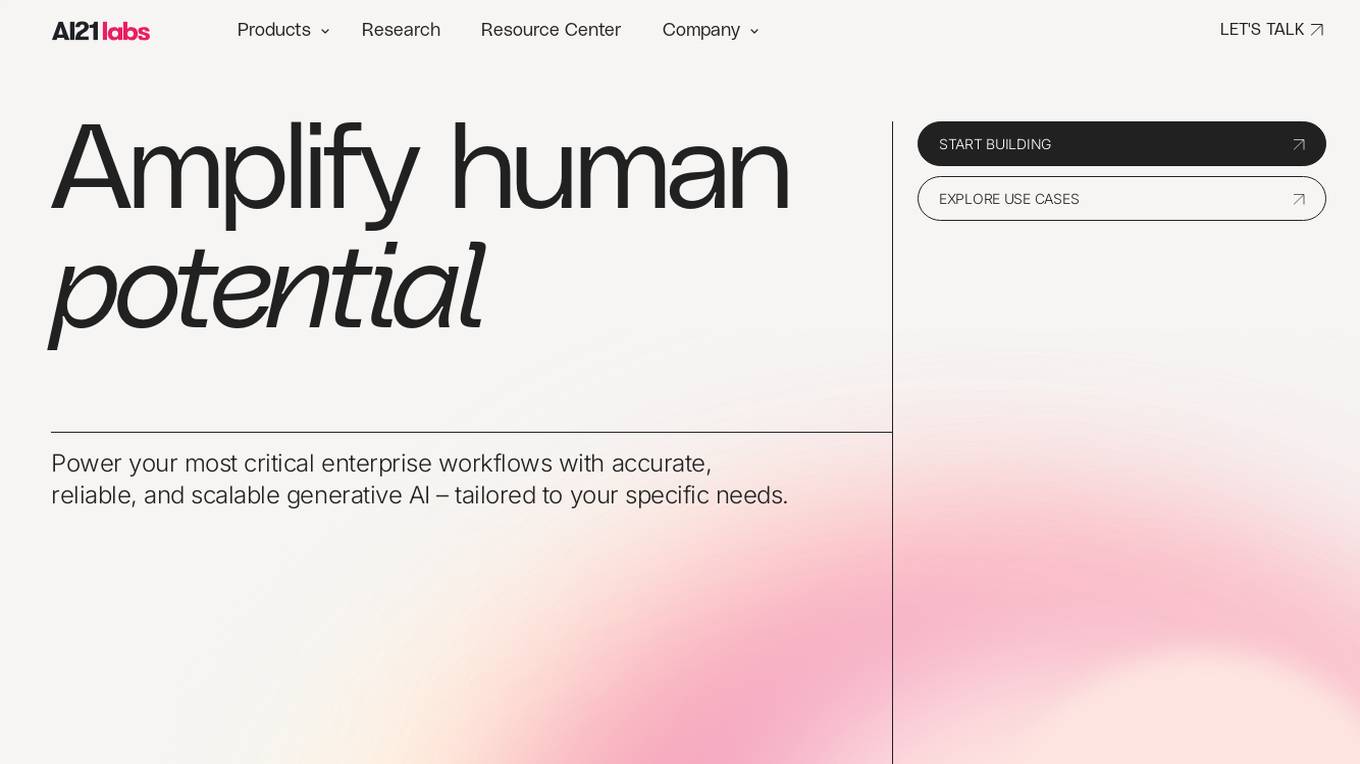
AI21 Labs
AI21 Labs is a reliable generative AI tool designed for enterprise products. It offers accurate, scalable, and tailored generative AI solutions to power critical workflows. The tool is human-centered, practical, and easily scalable to fit enterprise needs. Leading companies trust AI21 for its production-grade AI systems that amplify human potential and provide valuable assistance in various use cases.

Activeloop
Activeloop is an AI tool that offers Deep Lake, a database for AI solutions across various industries such as agriculture, audio processing, autonomous vehicles, robotics, biomedical and healthcare, generative AI, multimedia, safety, and security. The platform provides features like fast AI search, faster data preparation, serverless DB for code assistant, and more. Activeloop aims to streamline data processing and enhance AI development for businesses and researchers.

Myple
Myple is an AI application that enables users to build, scale, and secure AI applications with ease. It provides production-ready AI solutions tailored to individual needs, offering a seamless user experience. With support for multiple languages and frameworks, Myple simplifies the integration of AI through open-source SDKs. The platform features a clean interface, keyboard shortcuts for efficient navigation, and templates to kickstart AI projects. Additionally, Myple offers AI-powered tools like RAG chatbot for documentation, Gmail agent for email notifications, and AskFeynman for physics-related queries. Users can connect their favorite tools and services effortlessly, without any coding. Joining the beta program grants early access to new features and issue resolution prioritization.

LM-Kit.NET
LM-Kit.NET is a comprehensive AI toolkit for .NET developers, offering a wide range of features such as AI agent integration, data processing, text analysis, translation, text generation, and model optimization. The toolkit enables developers to create intelligent and adaptable AI applications by providing tools for language models, sentiment analysis, emotion detection, and more. With a focus on performance optimization and security, LM-Kit.NET empowers developers to build cutting-edge AI solutions seamlessly into their C# and VB.NET applications.
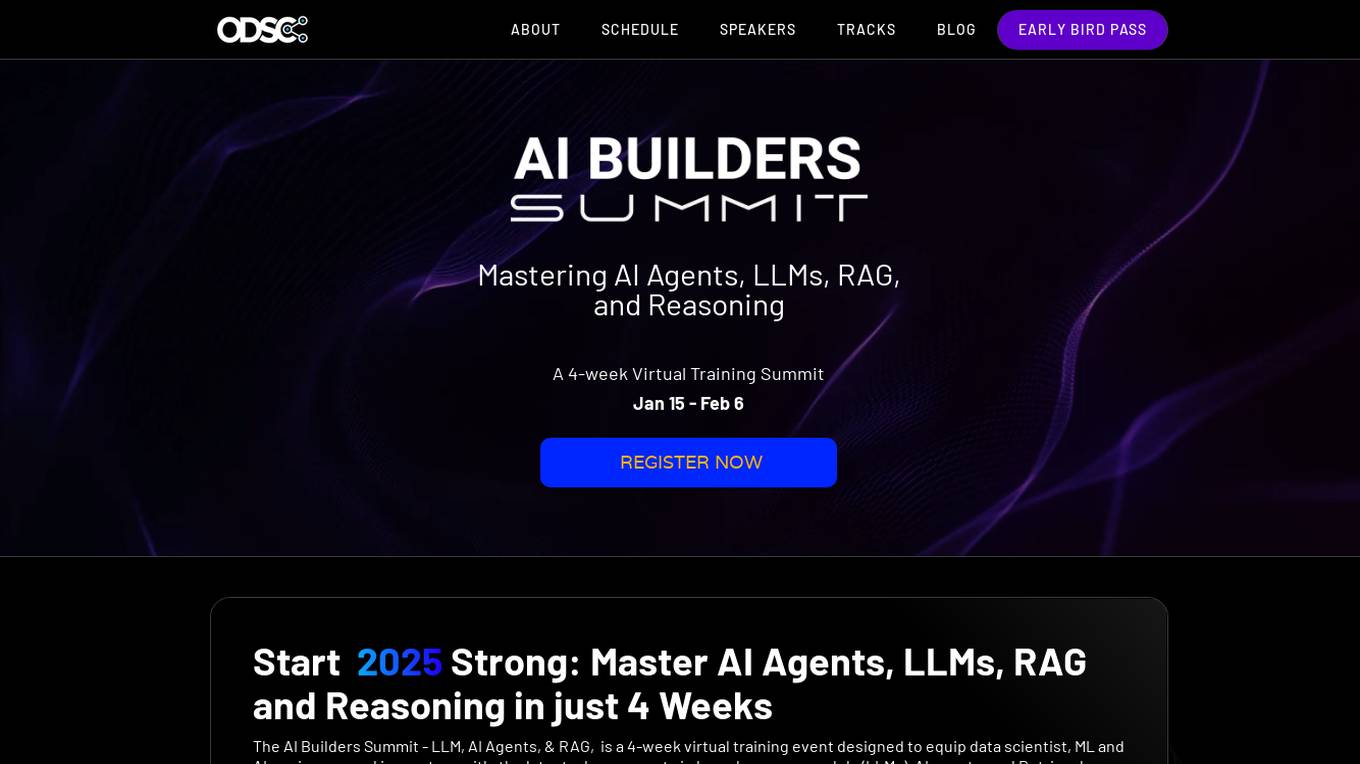
AI Builders Summit
AI Builders Summit is a 4-week virtual training event designed to equip data scientists, ML and AI engineers, and innovators with the latest advancements in large language models (LLMs), AI agents, and Retrieval-Augmented Generation (RAG). The summit emphasizes hands-on learning and real-world applications, with interactive workshops, platform credits, and direct exposure to industry-leading tools. Attendees can learn progressively over four weeks, building practical skills through expert-led sessions, cutting-edge tools, and industry insights.
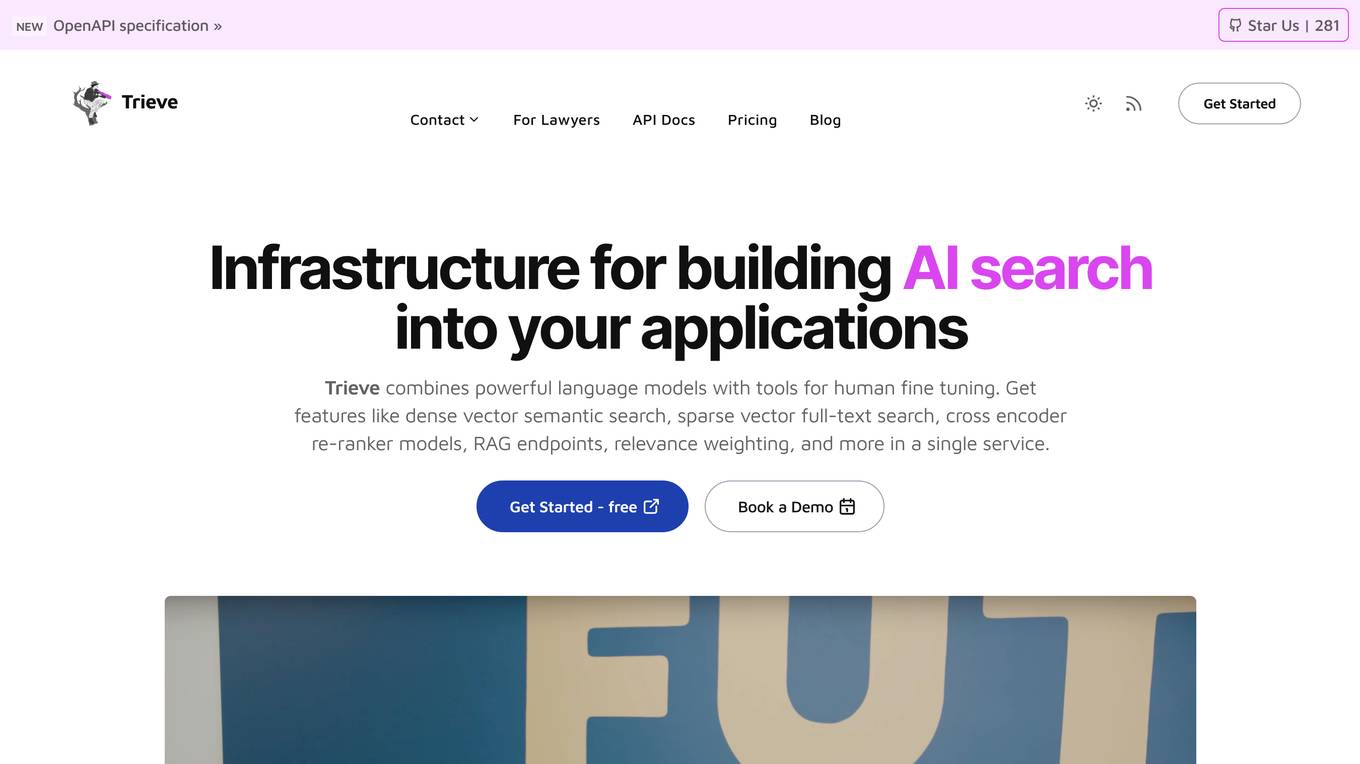
Trieve
Trieve is an AI-first infrastructure API that offers search, recommendations, and RAG capabilities by combining language models with tools for fine-tuning ranking and relevance. It helps companies build unfair competitive advantages through their discovery experiences, powering over 30,000 discovery experiences across various categories. Trieve supports semantic vector search, BM25 & SPLADE full-text search, hybrid search, merchandising & relevance tuning, and sub-sentence highlighting. The platform is built on open-source models, ensuring data privacy, and offers self-hostable options for sensitive data and maximum performance.
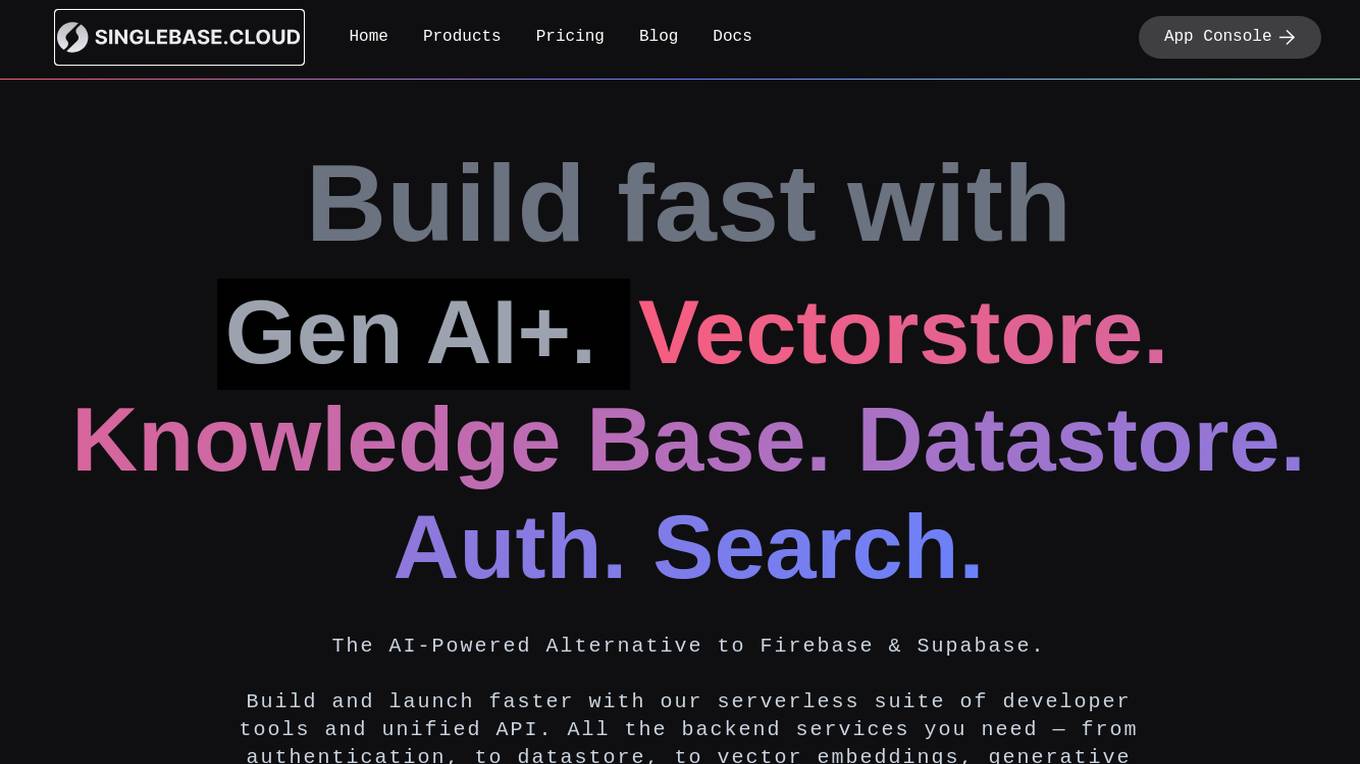
Singlebase
Singlebase.cloud is an AI-powered platform that serves as an alternative to Firebase and Supabase. It offers a comprehensive suite of tools and services to facilitate faster development and deployment through a unified API. The platform includes features such as Vector Database, NoSQL Database, Vector Embeddings, Generative AI, RAG, Knowledge Base, File storage, and Authentication, catering to a wide range of development needs.
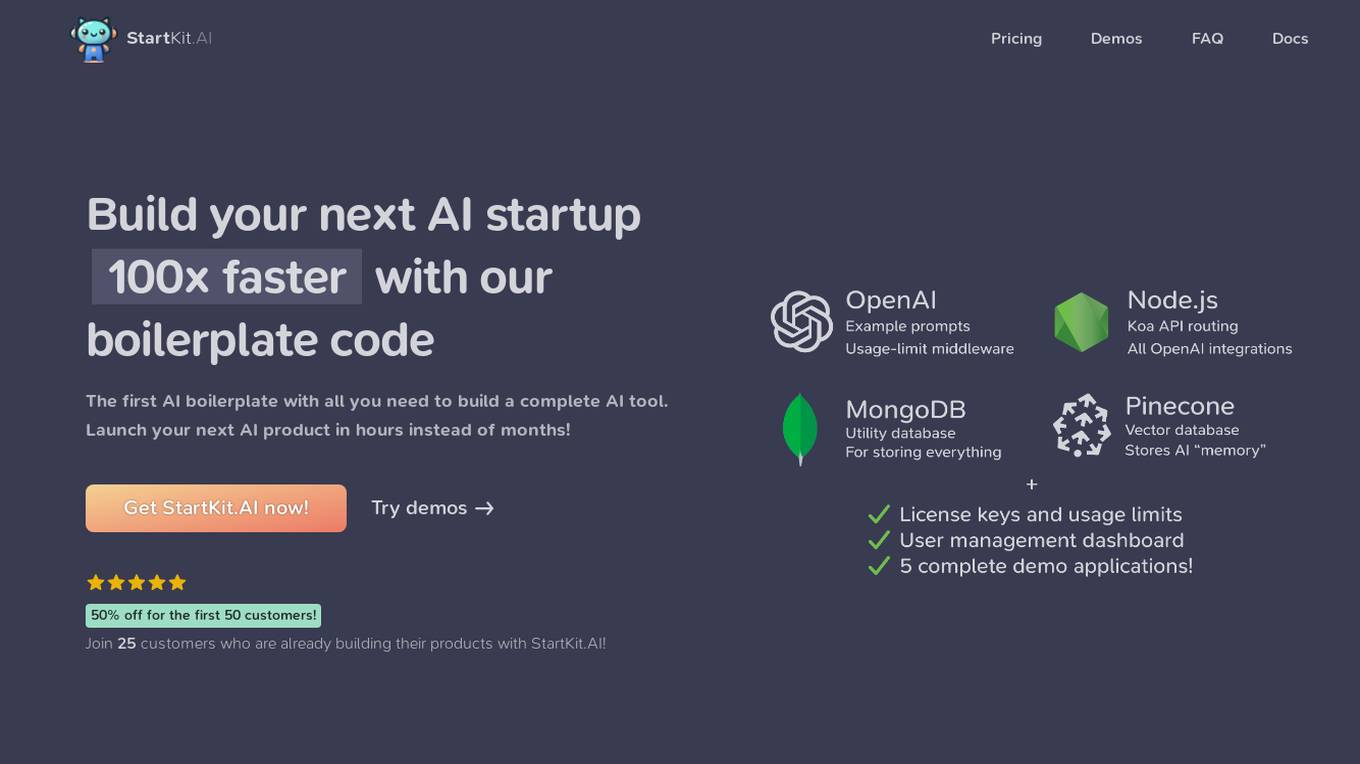
StartKit.AI
StartKit.AI is a boilerplate code for AI products that helps users build their AI startups 100x faster. It includes pre-built REST API routes for all common AI functionality, a pre-configured Pinecone for text embeddings and Retrieval-Augmented Generation (RAG) for chat endpoints, and five React demo apps to help users get started quickly. StartKit.AI also provides a license key and magic link authentication, user & API limit management, and full documentation for all its code. Additionally, users get access to guides to help them get set up and one year of updates.
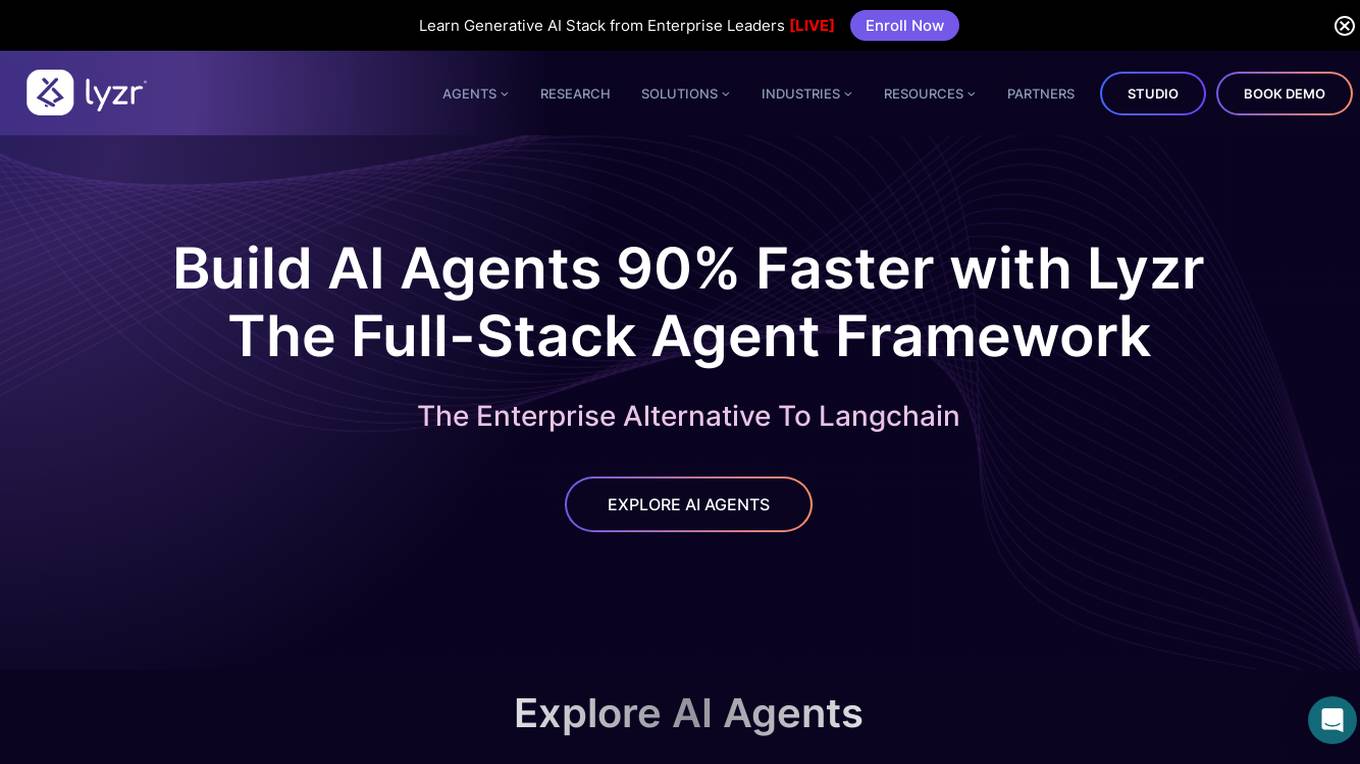
Lyzr AI
Lyzr AI is a full-stack agent framework designed to build GenAI applications faster. It offers a range of AI agents for various tasks such as chatbots, knowledge search, summarization, content generation, and data analysis. The platform provides features like memory management, human-in-loop interaction, toxicity control, reinforcement learning, and custom RAG prompts. Lyzr AI ensures data privacy by running data locally on cloud servers. Enterprises and developers can easily configure, deploy, and manage AI agents using Lyzr's platform.
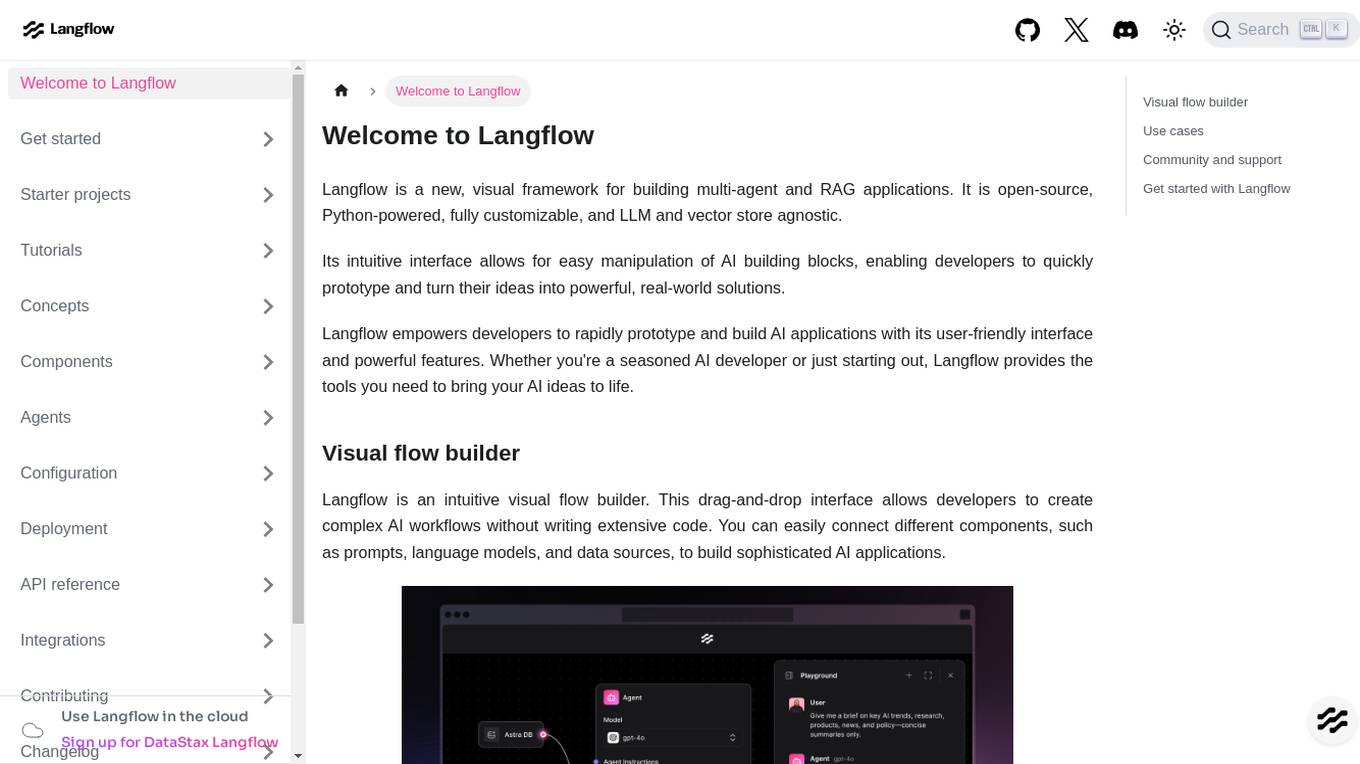
Langflow
Langflow is a new, visual framework for building multi-agent and RAG applications. It is open-source, Python-powered, fully customizable, and LLM and vector store agnostic. Langflow empowers developers to rapidly prototype and build AI applications with its user-friendly interface and powerful features. Whether you're a seasoned AI developer or just starting out, Langflow provides the tools you need to bring your AI ideas to life.
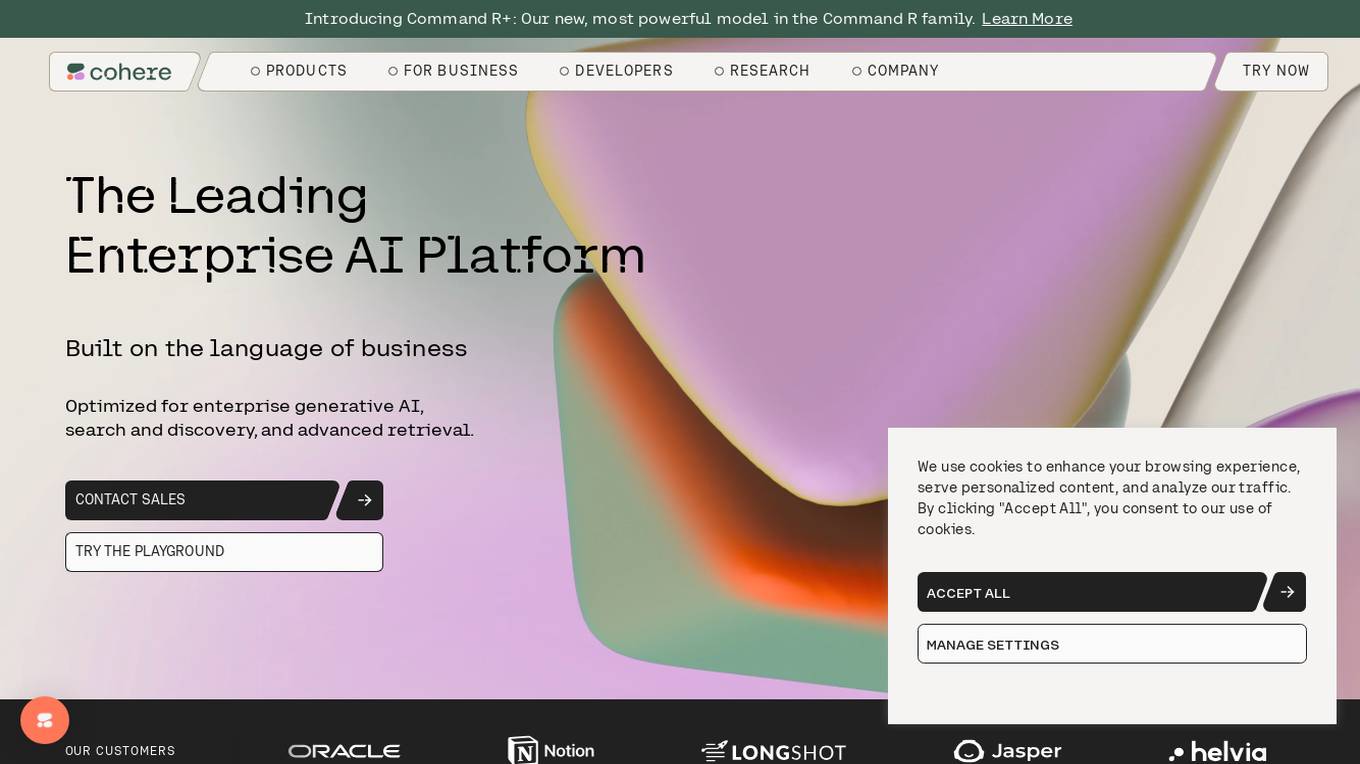
Cohere
Cohere is the leading AI platform for enterprise, offering products optimized for generative AI, search and discovery, and advanced retrieval. Their models are designed to enhance the global workforce, enabling businesses to thrive in the AI era. Cohere provides Command R+, Cohere Command, Cohere Embed, and Cohere Rerank for building efficient AI-powered applications. The platform also offers deployment options for enterprise-grade AI on any cloud or on-premises, along with developer resources like Playground, LLM University, and Developer Docs.
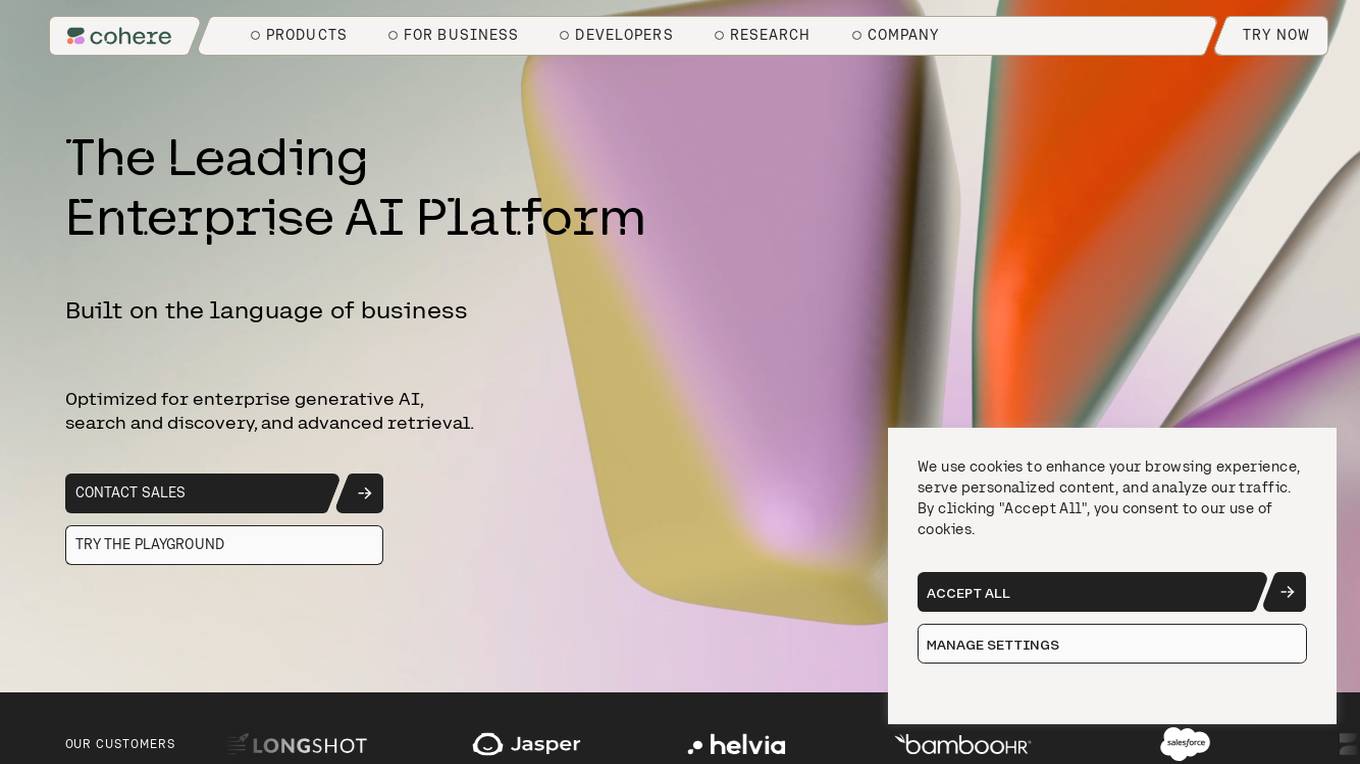
Cohere
Cohere is the leading AI platform for enterprise, offering generative AI, search and discovery, and advanced retrieval solutions. Their models are designed to enhance the global workforce, empowering businesses to thrive in the AI era. With features like Cohere Command, Cohere Embed, and Cohere Rerank, the platform enables the development of scalable and efficient AI-powered applications. Cohere focuses on optimizing enterprise data through language-based models, supporting over 100 languages for enhanced accuracy and efficiency.

Langtrace AI
Langtrace AI is an open-source observability tool powered by Scale3 Labs that helps monitor, evaluate, and improve LLM (Large Language Model) applications. It collects and analyzes traces and metrics to provide insights into the ML pipeline, ensuring security through SOC 2 Type II certification. Langtrace supports popular LLMs, frameworks, and vector databases, offering end-to-end observability and the ability to build and deploy AI applications with confidence.

Goover
Goover is an AI Re:search Agent that provides tailored, insightful Reports and Briefings generated in minutes through simple questions. Trusted by global leaders and everyday users, Goover helps make informed decisions and navigate challenges effortlessly. Users can ask any question, attach documents, and turn questions into insights. With features like Smart Feed, Smart Briefing, and Briefing Agents, Goover ensures users stay informed on topics of interest and gain a competitive edge. Users can also upload documents, edit references, and regenerate reports in various styles for hyper-personalized AI-Reports. Goover's Chrome Extension allows users to clip insightful content, organize collections, and convert them into actionable insights. Additionally, Goover builds knowledge graphs automatically by reviewing reference documents, extracting key topics, and linking them semantically to reveal hidden insights and relationships among key players.
1 - Open Source AI Tools
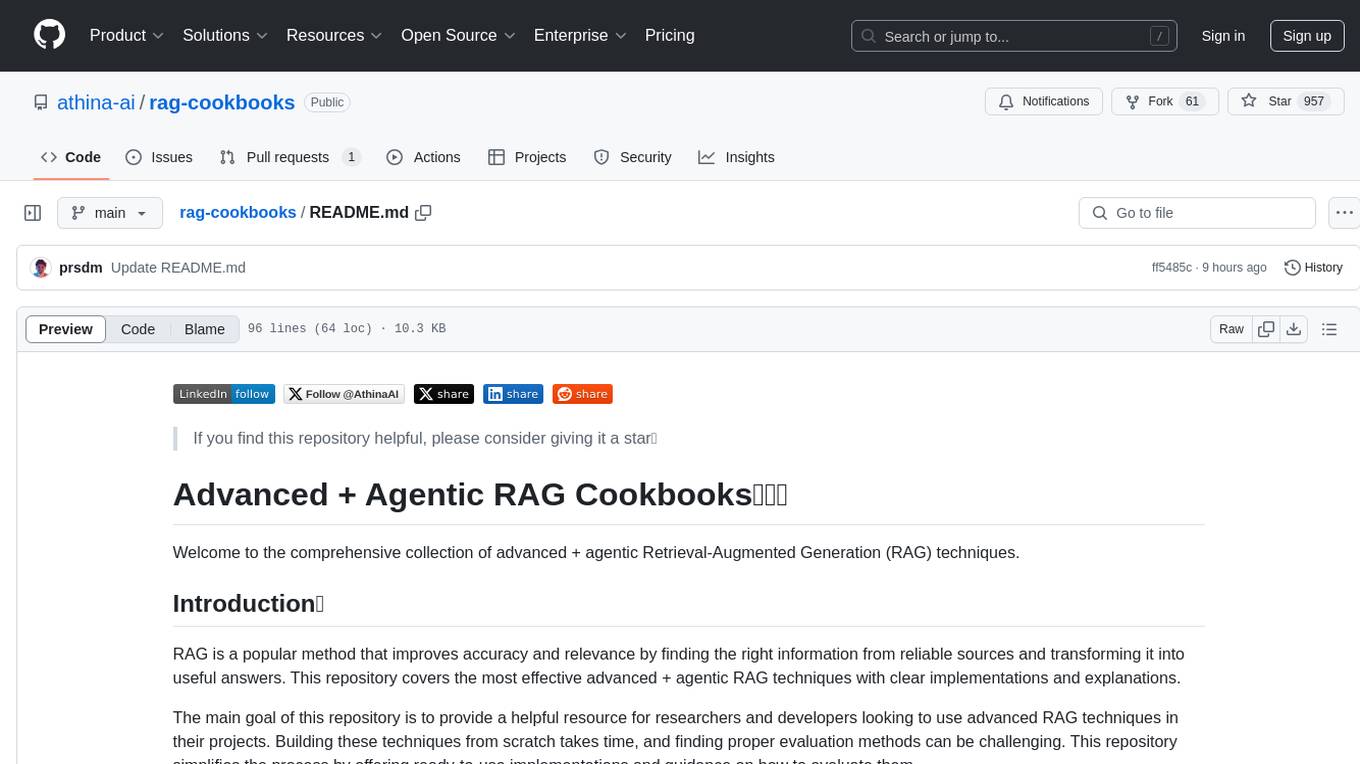
rag-cookbooks
Welcome to the comprehensive collection of advanced + agentic Retrieval-Augmented Generation (RAG) techniques. This repository covers the most effective advanced + agentic RAG techniques with clear implementations and explanations. It aims to provide a helpful resource for researchers and developers looking to use advanced RAG techniques in their projects, offering ready-to-use implementations and guidance on evaluation methods. The RAG framework addresses limitations of Large Language Models by using external documents for in-context learning, ensuring contextually relevant and accurate responses. The repository includes detailed descriptions of various RAG techniques, tools used, and implementation guidance for each technique.
20 - OpenAI Gpts
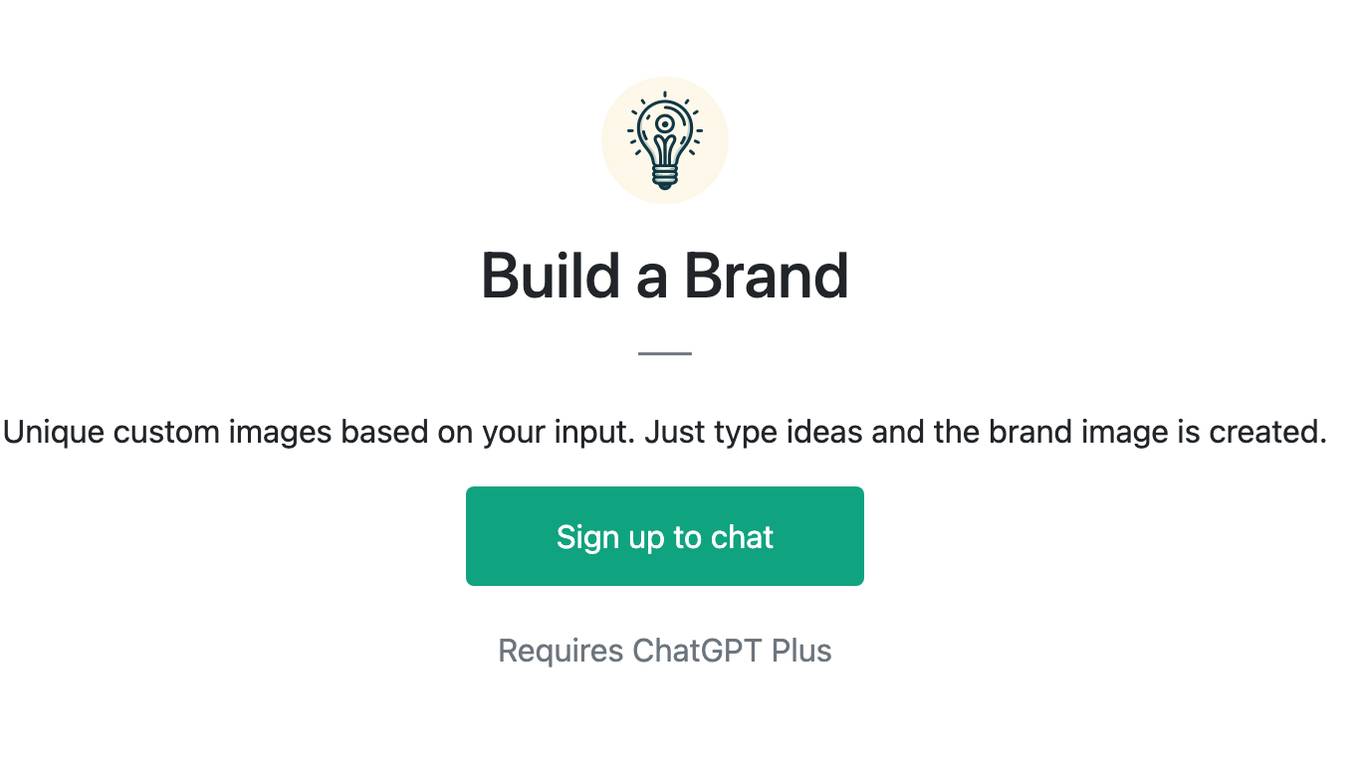
Build a Brand
Unique custom images based on your input. Just type ideas and the brand image is created.
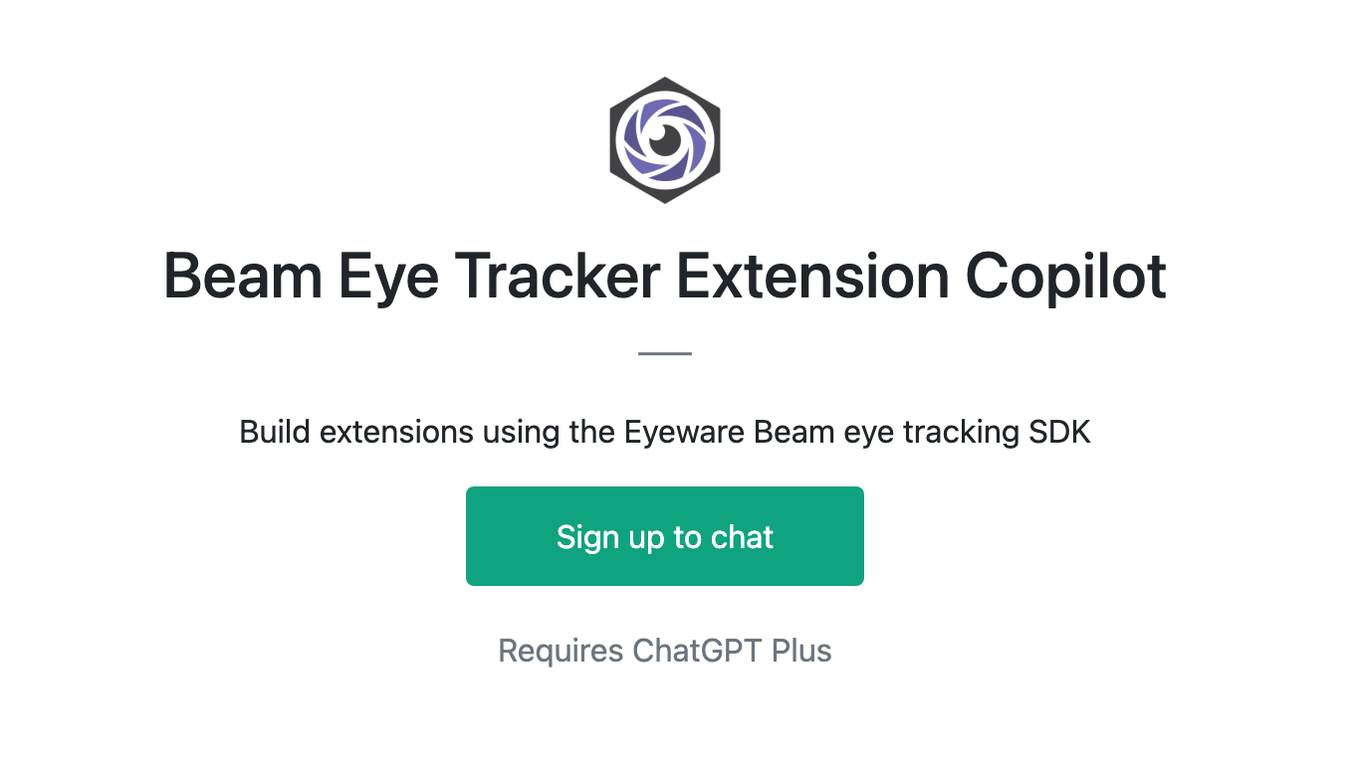
Beam Eye Tracker Extension Copilot
Build extensions using the Eyeware Beam eye tracking SDK

Business Model Canvas Strategist
Business Model Canvas Creator - Build and evaluate your business model

League Champion Builder GPT
Build your own League of Legends Style Champion with Abilities, Back Story and Splash Art
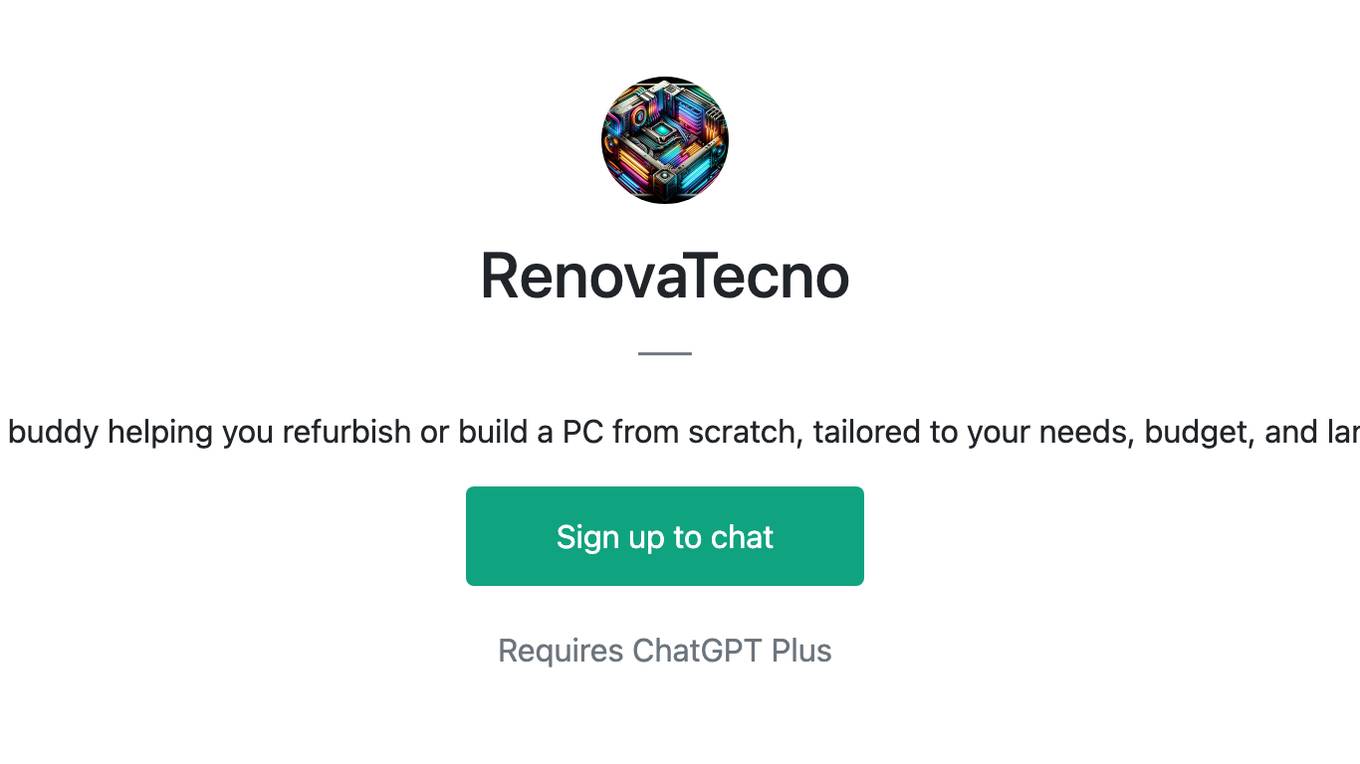
RenovaTecno
Your tech buddy helping you refurbish or build a PC from scratch, tailored to your needs, budget, and language.
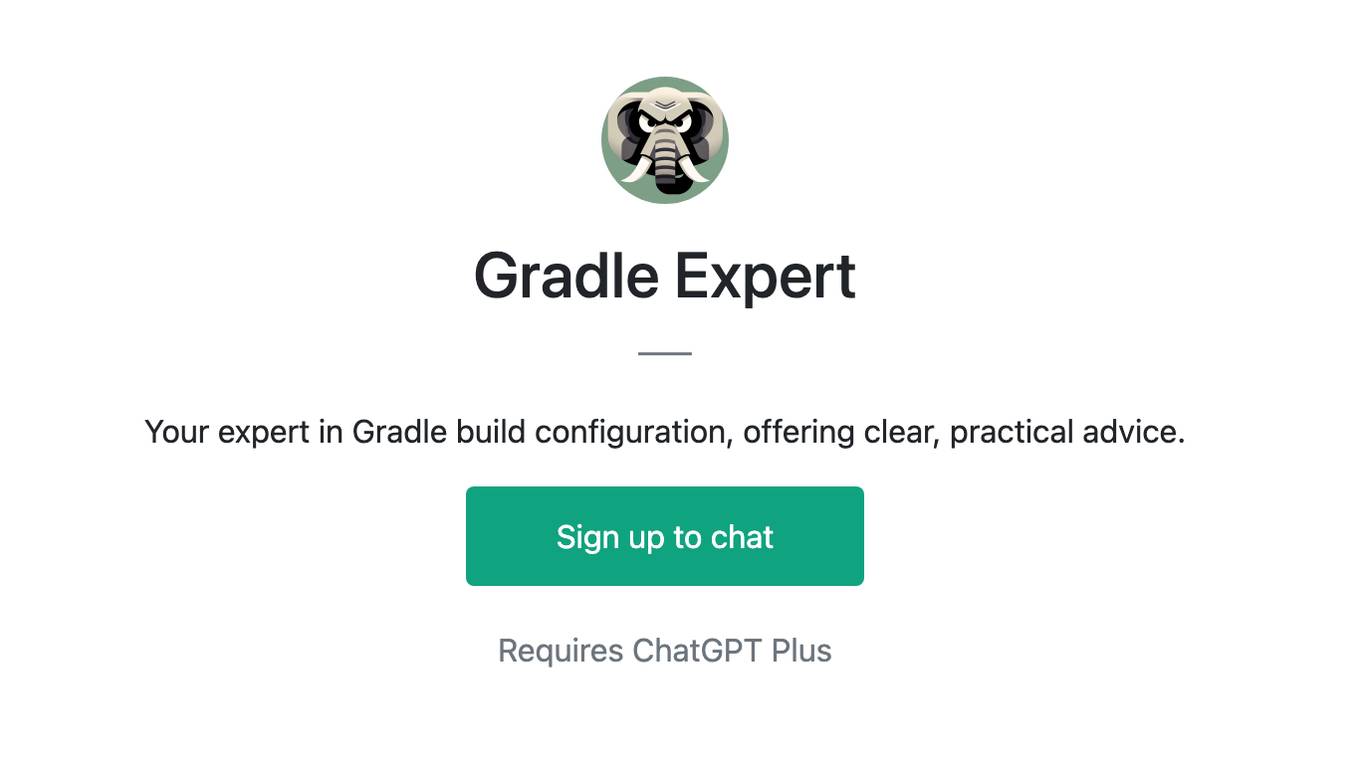
Gradle Expert
Your expert in Gradle build configuration, offering clear, practical advice.
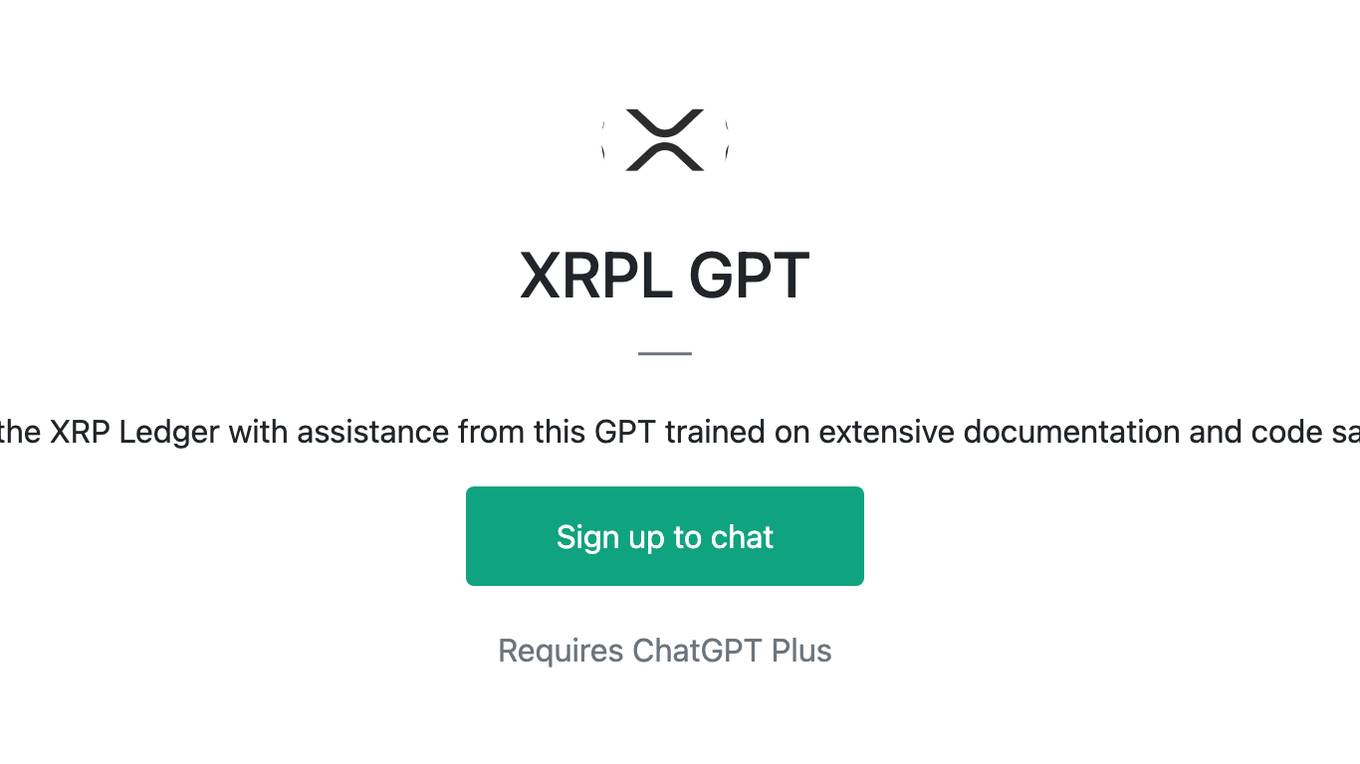
XRPL GPT
Build on the XRP Ledger with assistance from this GPT trained on extensive documentation and code samples.
